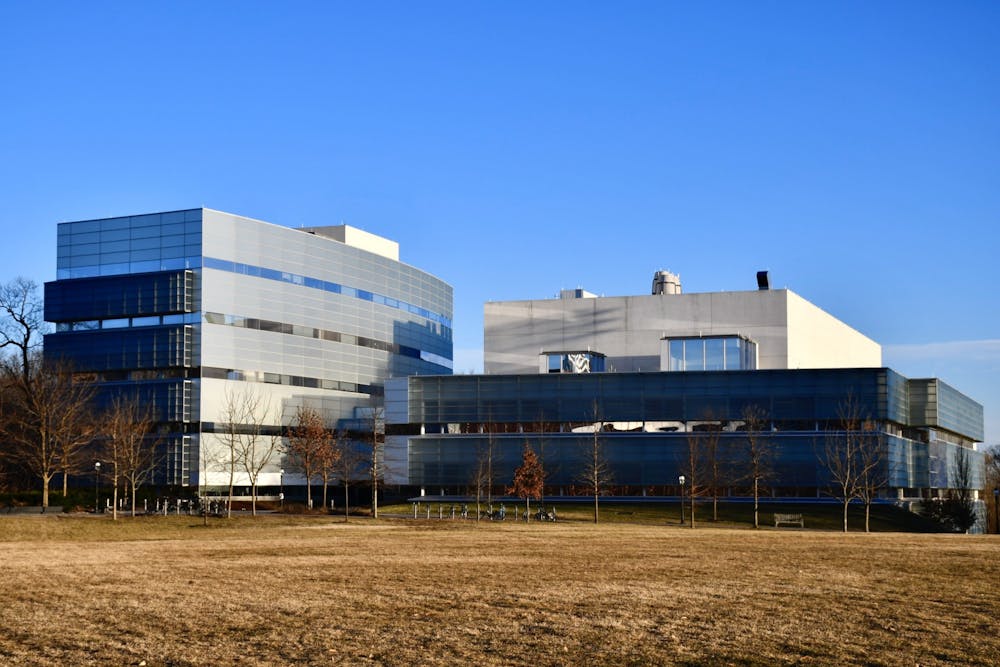The University is “considering the possibility of allowing a limited number of seniors back to campus” for the fall term, according to an email sent Friday, June 19, to faculty members who advise rising seniors in the Neuroscience department.
According to the memo, whether a student requires lab facilities for their independent work may determine whether they return in the fall.
In the email, Jonathan Cohen and David Tank, co-directors of the Princeton Neuroscience Institute (PNI), wrote they “need to know which students would benefit most from on campus research if they are in fact allowed back.” Data from Tigerbook indicates there are 35 rising seniors in the Neuroscience department.
The University still plans to issue a decision on fall undergraduate instruction in early July. Administrators are considering a variety of options — which presumably include the one described in Cohen and Tank’s email, later obtained by the ‘Prince.’
“The Dean of the College is considering the possibility of allowing a limited number of seniors back to campus for the Fall 2020 semester. Among the considerations for allowing students back is the need to be physically present in a laboratory in order to carry out optimal independent work,” Cohen and Tank wrote to 16 faculty members associated with the Neuroscience Institute and Department of Psychology.
“If you are advising a student whose independent work would be significantly enhanced by access to your laboratory in the fall, and you feel you can accommodate them in your lab at that time (even assuming that we remain at Level 2 research operations) please send the name of that student to [psychology and neuroscience professor Elizabeth Gould] by Monday,” they added.
According to the Office of the Dean for Research, Level 2 — titled “Phased resumption” — allows on-campus research to be “carried out in compliance with social distancing, personal protective equipment, and other … hygiene requirements.”
Amid the pandemic, the University had entered Level 3 — titled “Essential operations” — which permits only “a limited number of essential research and COVID-19 projects” and restricts access to laboratories “for maintenance operations.” The University is currently transitioning to Level 2.
A timestamp indicates that Cohen and Tank sent the memo on June 19 at 12:20 p.m. EDT.
Cohen and Tank did not respond to requests for comment in time for publication.
Since the spring, a number of groups within the University have explored a wide range of planning options. In an interview earlier this month, Dean of the College Jill Dolan indicated that a “cohort plan,” in which certain class years return to campus while others do not was one of many possible scenarios for the fall semester. Such an arrangement could restrict on-campus life to first-year students and seniors.
The email comes a day after University Trustee and N.J. Gov. Phil Murphy released an executive order detailing means by which institutions of higher education may begin to resume campus life. In the press conference announcing the executive order on Wednesday, Secretary of Higher Education Zakiya Smith Ellis called a “hybrid system” of online and in-person teaching most “realistic” and stressed the importance of social distancing, wearing face coverings, and the fact that “no student can be required to live on campus.”

In a statement to the ‘Prince,’ University Spokesperson Ben Chang wrote that the University “must take into account in all of the planning underway the real, tangible constraints imposed by COVID-19.”
“Those constraints require us to look at a range of scenarios,” he added.
On the potential plan described in Cohen and Tank’s email — of allowing only a sub-group of seniors to return to campus — Chang added that the University is considering how to keep students on their path toward achieving a degree.
“One key concern is our ability to keep every student on her or his path to graduation — that includes seniors who need to do lab work to complete their degree,” he wrote. “As President Eisgruber explained in his message to the University community last month, the University is committed to offering the best possible education consistent with the health and well-being of our community.”
Chang did not speak directly to the email from PNI leadership, noting that “[p]lanning continues in real time as we look towards announcing our plans for the undergraduate teaching program this fall. We are still on track to announce those plans in early July.”
Associate News and Features Editor Marie-Rose Sheinerman contributed reporting.








